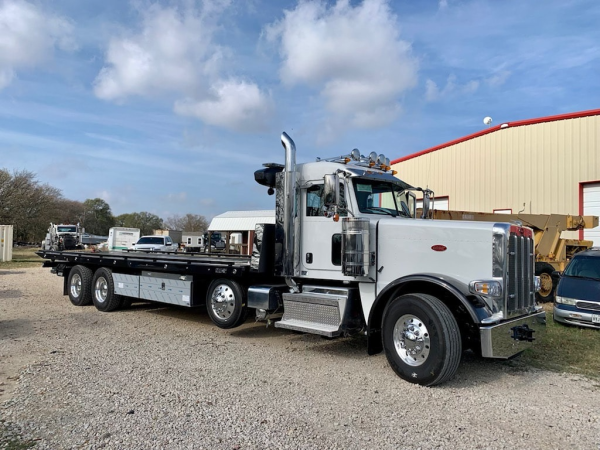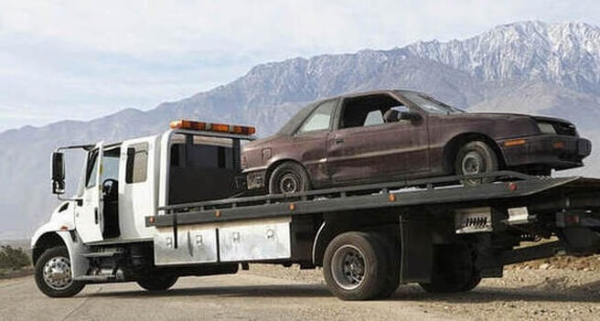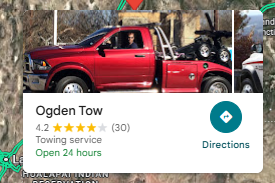Understanding the Key Differences Between Light Towing and Heavy Towing
Light towing is ideal for smaller vehicles like cars, motorcycles, and light trucks, offering quick, cost-effective roadside help. Heavy towing handles larger loads such as buses, RVs, and semi-trucks, using specialized equipment and skilled operators. Choosing the right service ensures safety, efficiency, and less downtime.For reliable towing in Layton, UT, contact Ogden Tow at +1 801-396-9519 or visit ogdentow.com.
Layton, Utah, United States, 17th Sep 2025 – When your vehicle breaks down or you need roadside assistance, understanding the difference between light towing and heavy towing can help you make the right call. Not every tow truck is equipped to handle the same kind of load, and choosing the wrong type of service could cause more delays. Light towing generally handles smaller vehicles such as cars, motorcycles, and small trucks, while heavy towing is designed for larger, heavier equipment. By knowing what sets these two types apart, you can better prepare for emergencies and ensure your vehicle gets the care it needs.

Understanding Light Towing Services
Light towing services focus on handling everyday vehicles most people drive. These tow trucks are built for cars, small SUVs, motorcycles, and light-duty trucks, making them ideal for common roadside breakdowns. They are typically faster to deploy and maneuver easily in urban or residential areas, ensuring stranded drivers get help quickly. Because light-duty tow trucks can’t exceed their own weight capacity, they are safe for smaller jobs but not suited for oversized or heavily loaded vehicles.
Choosing light towing means opting for convenience when your vehicle needs short-distance transport. These trucks are not only more cost-efficient but also tailored to meet the needs of drivers who experience routine breakdowns, flat tires, or engine troubles. With specialized tools like wheel lifts and flatbeds, light towing trucks can carefully move your vehicle without causing damage. This makes them an essential service for the everyday driver who doesn’t require the additional strength of heavy towing.
Defining Heavy Towing Services
Heavy towing services are designed for situations that go beyond standard roadside assistance. These tow trucks are equipped with stronger engines, reinforced chassis, and specialized equipment to manage larger loads. They are built to handle buses, semi-trucks, construction equipment, and other oversized vehicles that exceed the weight limits of light-duty trucks. Their power allows them to pull stranded heavy vehicles off highways or even recover overturned rigs safely.
When you choose heavy towing, you’re relying on trucks built for endurance and strength. Operators of heavy-duty tow trucks are highly trained to handle complex recovery situations that require precision and safety. Unlike light towing, which is more straightforward, heavy towing often involves dealing with massive loads and challenging terrain. For businesses that depend on large commercial vehicles, heavy towing is an essential service to keep operations running smoothly after breakdowns or accidents.
The Role of Equipment in Towing
Equipment plays a major role in determining whether light or heavy towing is required. Light tow trucks typically use wheel lifts and flatbed systems to transport vehicles safely. These tools work perfectly for cars and motorcycles but would struggle under the weight of larger vehicles. Their equipment is made for speed, efficiency, and protection of smaller vehicles during transport.
Heavy towing trucks, however, are outfitted with much more powerful machinery. Winches, rotators, and reinforced booms allow them to lift, pull, and secure enormous vehicles that would overwhelm a light-duty truck. The difference in equipment directly influences the type of jobs each towing service can manage. Understanding this distinction ensures you request the right service, preventing wasted time and avoiding risks of damage.
Weight Capacity Differences
The most significant difference between light towing and heavy towing lies in weight capacity. Light-duty tow trucks can only manage vehicles that do not exceed their own weight mass. This typically includes cars, motorcycles, and some light trucks. Trying to move something larger with a light tow truck could lead to damage, equipment strain, or unsafe conditions on the road.
Heavy-duty tow trucks are designed with much higher weight limits in mind. They can handle loads exceeding tens of thousands of pounds, making them the preferred choice for buses, tractor-trailers, and large construction machinery. Their structure allows them to carry weight efficiently without risking breakdowns or compromising safety. Knowing these weight distinctions is vital for both individual drivers and commercial operators.
Situations Suited for Light Towing
Light towing is perfect for the types of breakdowns many drivers encounter on a regular basis. Whether you lock your keys inside your car, experience a flat tire, or find your battery has died, light-duty trucks are prepared for quick assistance. These vehicles respond faster in residential neighborhoods or busy city streets due to their smaller size and agility.
They are also suitable for short hauls, like transporting a vehicle to a nearby repair shop. Motorcycles, compact cars, and mid-sized vehicles can all be safely transported without issue. Since light towing services are more affordable and efficient for small-scale needs, most everyday drivers find themselves relying on this service at some point in their lives.
Situations Suited for Heavy Towing
Heavy towing comes into play when standard towing simply isn’t enough. Semi-trucks that break down on highways, buses needing recovery, or large industrial machinery that requires transport all fall under the heavy-duty category. These massive vehicles need specialized handling that ensures stability and safety during the towing process.
Emergency recovery is another key situation where heavy towing is required. When large vehicles roll over, slide off-road, or break down with heavy cargo, heavy tow trucks provide the necessary equipment to manage the job. Businesses and commercial fleet owners often depend on heavy towing to minimize downtime, knowing these services are designed for difficult, large-scale recoveries.

The Importance of Safety in Towing
Safety is a major factor in determining whether light or heavy towing is used. Light-duty trucks are safe for everyday vehicles because they are not forced beyond their capacity. This ensures the tow is smooth and minimizes the risk of damage to your car. Safety also extends to drivers, as light tow trucks are easier to maneuver through traffic.
In heavy towing, safety becomes even more critical. Operators must account for load distribution, road stability, and securing massive vehicles. Specialized training ensures heavy-duty towing is conducted without creating hazards on highways. Using the correct type of towing prevents accidents and ensures both the driver and vehicle are protected throughout the process.
Cost Considerations Between the Two
Cost can be a deciding factor when choosing between light and heavy towing. Light towing services are typically more affordable since they involve less equipment, time, and fuel. For common vehicle breakdowns, this makes them the practical choice. Most everyday drivers appreciate the balance of affordability and reliability light towing provides.
On the other hand, heavy towing costs more due to the larger equipment, specialized skills, and additional safety precautions involved. While the cost may be higher, it reflects the complexity and importance of handling massive vehicles safely. For commercial operators or owners of large vehicles, heavy towing is worth the investment because it prevents more serious losses from prolonged downtime.
How to Choose the Right Service
Choosing between light and heavy towing depends on the type of vehicle and situation you are dealing with. If you drive a car, motorcycle, or small truck, light towing will almost always be the right choice. It is quicker, more cost-effective, and tailored for smaller loads. These trucks can reach you in residential areas and provide efficient roadside help.
For larger vehicles such as RVs, semi-trucks, or buses, heavy towing becomes necessary. Understanding your vehicle’s weight and size helps determine the proper service. Calling a company experienced in both light and heavy towing ensures you receive guidance on the right option. This knowledge can save time and ensure your vehicle gets the safest and most reliable assistance.
Conclusion
Light towing and heavy towing each serve important roles in keeping drivers and businesses moving when vehicles break down. While light towing is best suited for smaller cars, motorcycles, and everyday roadside issues, heavy towing is designed for larger, heavier loads that demand specialized equipment and skills. Understanding the difference allows you to call for the right service, saving time and ensuring safety on the road.
If you’re in Layton, UT and need dependable towing services, Ogden Tow is here to help. Whether you need quick light towing or professional heavy towing, our team is equipped to handle your needs safely and efficiently. Call us today at +1 801-396-9519 to get fast, reliable assistance when you need it most.

Full business name : Ogden Tow
Full business name: 301 N Main St Suite 99, Layton, UT 84041
Website : http://www.ogdentow.com/
Contact number: +18013969519
Company Details
Organization: Ogden Tow
Contact Person: Ogden Tow
Website: http://www.ogdentow.com/
Email: Send Email
Contact Number: +18018459514
Address: 301 N Main St Suite 99, Layton, UT 84041
City: layton
State: utah
Country: United States
Release Id: 17092533954
